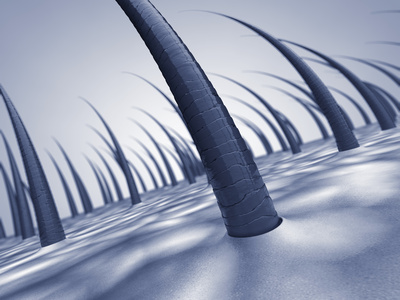
It is a known fact that hair care begins at home, right from the dietary habits to regular hair care routines. Despite the best of care, people across age-groups tend to experience hair loss for various reasons. The problem can surface due to one or more of the following causes – irregular food or hair cleansing routines, over-exposure to elements of weather, stress, genetic factors, pregnancy, age, hormonal imbalance, prolonged illness or medication.
Whatever the reason, it is important to prevent hair loss before the problem gets out of hand. How to prevent hair loss? There are several ways to stop hair loss, including but not limited to:
Dietary Changes
Making some changes to the regular diet will certainly help ward off hair loss for longer. Foods rich in select vitamins and minerals are bound to nourish the scalp. Vitamins A, B and E from vegetable and animal sources prove to remedy hair loss. Carrots, spinach and green leafy veggies, fish oil, eggs, milk are few sources of vitamin A – an anti-oxidant that also helps sebum production in the scalp.
Protein-rich foods such as legumes, soyabean, poultry, fish and meat are the main sources of vitamins B6 and B12 that help regulate hemoglobin production. These vitamins help maintain a steady supply of blood to the scalp, nourishing hair follicles in the process, and adding a healthy tone to the hair.
Vitamin E, vitamin C, folic acid, zinc and water are other essentials that help the hair and scalp nourished and free from dandruff.
It may really not be possible to derive all essential hair nutrients from food, and vitamin supplements help make up for the deficiencies.
Home Remedies
Hair care routines are essential to keep the scalp free of dandruff and well moisturized. Scalp massages with essential oils, olive oil, castor oil, coconut oil, green tea or natural preparations from henna, rosemary, almonds, onion, garlic – all work wonders to nourish hair and stop hair loss. Hot oil massages also help improve blood circulation and fortify the scalp.
Home-made remedies address the daily hair care requirements, without relying on chemical-based hair care products that may not go well with all users. Avoiding excessive hair styling is also equally effective in preventing hair loss.
Prescribed Medications and Treatment
Persistent hair loss and thinning may need to be handled with the help of a qualified trichologist or hair specialist for addressing specific health problems and genetic factors. While a sloppy hair care regimen is usually the cause of hair loss, it certainly does benefit to get a professional opinion.
Health conditions such as anemia, prolonged treatment for select illnesses, use of blood thinner or antidepressants, thyroid problems, high levels of emotional stress, contraceptives, and hormonal changes may also cause hair loss. When addressed appropriately, it is possible to limit the damage.
Addressing Alopecia
Male-pattern and female-pattern baldness are common genetic conditions that lead to progressive thinning of hair and bald patches, which form along the temples to extend to the back of the head. The main reason for hair loss in this case, aka androgenic alopecia, is a hormonal imbalance due to excess dihydrotestosterone, which is known to interfere with the growth cycle of the hair, causing hair follicles to shrink over time. Those wondering how to prevent hair loss caused by baldness can resort to prescribed OTC medications such as Minidoxil and Finasteride, after making note and discussing the side effects with their general practitioner.
These medications, however, need some time to achieve intended results. They improve blood circulation to the scalp, strengthen hair follicles and control the levels of the hormone, thereby restoring the normal cycle of hair growth.
Stimulating Hair Follicles
It is very much possible to simulate hair follicles to restore their normal function. Topical application of mild steroidal creams, laser simulation, or PUVA – a combination of a prescribed medication along with UV light treatment can get the scalp rejuvenated and revive hair growth. PUVA, however, is known to cause nausea, needs adequate protection for the eyes, and is not suitable for children.
Hair Restoration
In cases where other forms of treatment do not help prevent hair loss, it is possible to remedy the problem with the help of hair transplants or even restoration surgery.
Hair transplants involve patching a small area with a few strands of hair at a time, the effect being convincingly natural.
Hair restoration surgery mainly limited to men, involves removing a patch of hair from a densely covered part of the head, and stitching it over a bald patch to neatly cover the surface. In select cases, a patch of scalp itself is relocated and snugly stitched into place so that both the source and target areas are well-hidden and seamlessly fall in place.
While regular dietary and hair care routines are usually enough to maintain a good crop of hair, supplements and mild hair care products help nourish and sustain it well. For severe hair problems, there’s always professional help available.
